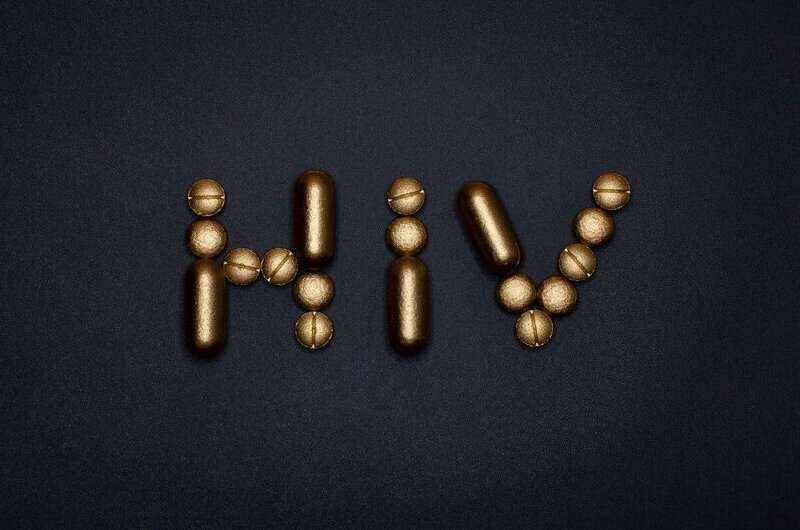This article has been reviewed according to Science X's editorial process and policies. Editors have highlighted the following attributes while ensuring the content's credibility:
fact-checked
trusted source
proofread
Late HIV diagnosis still an issue in Aotearoa

Forty percent of people diagnosed with HIV in Aotearoa between 2011 and 2020 were diagnosed late, a University of Otago study shows.
Early diagnosis of HIV is essential for successful treatment and antiretroviral therapy, according to the lead author, Dr. Sue McAllister, of the University's AIDS Epidemiology Group. The research is published in the International Journal of STD & AIDS.
"This treatment suppresses the virus in the body, improves the health of people living with HIV and stops transmission to sexual partners," Dr. McAllister says.
"If someone is diagnosed late there is less opportunity to control progression and they can often become very unwell requiring hospitalization."
Of the 1,145 people diagnosed with HIV during the study period, 464 (40.5%) presented late and a quarter of them were considered to have advanced disease at the time of their HIV diagnosis.
Of all those diagnosed late, the majority were men who have sex with men. Heterosexual men and women were however proportionately more likely to be diagnosed late (55%) compared to men who have sex with men (36%).
A previous study conducted by Dr. McAllister's group, with results for the six years to 2010, showed even higher proportions of people being diagnosed late. So, there is an improvement—but why there continues to be late diagnosis is not entirely clear.
"Heterosexual men and women might be less aware about the possibility of HIV and the need for testing. Health care providers may also not be thinking about HIV as a possible diagnosis when they encounter someone with symptoms but who appears to not be at elevated risk of HIV. Both instances result in missed opportunities for testing and diagnosis.
"There also continues to be considerable stigma around HIV and an assumption it only affects gay and bisexual men," she says.
While many gay and bisexual men in Aotearoa are aware of the need for regular HIV testing, the paper finds that non-European gay and bisexual men are more likely to be diagnosed late.
"Again, why isn't clear; but it could be harder for gay and bisexual men within certain ethnic groups to access testing services that are both non-judgmental about their sexuality and culturally safe."
Behavioral surveys among gay and bisexual men about HIV testing, barriers to care and risk reduction practices would shed more light on late diagnoses, she says. But there is no easy fix.
"Comprehensive efforts towards individuals, relevant communities and the health system is needed.
"That means continued awareness campaigns, making testing easy and culturally appropriate, engaging and funding relevant groups, better funding for sexual health clinics and a focus on opportunistic screening, such as in gynecological clinics and emergency departments."
More information: Jerram P Bateman et al, Late presentation of HIV infection among adults in New Zealand from 2011 to 2020, International Journal of STD & AIDS (2023). DOI: 10.1177/09564624231151458

















